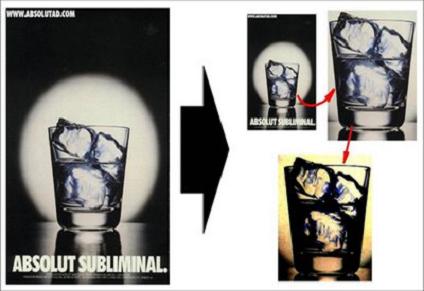

Journal of Experimental Psychology: Human Perception and Performance 15: 203-211.įarah, M. Mechanisms of imagery-perception interaction. Subliminal Perception: The Nature of a Controversy. Canadian Journal of Psychology 40: 343-367.ĭixon, L. Distinguishing conscious from unconscious perceptual processes. Perception and Psychophysics 36: 387-395.Ĭheesman, J. A thoroughly empirical approach to consciousness. Autonomic recognition of names and faces in prosopagnosia: A neuropsychological application of the Guilty Knowledge Test. Journal of verbal Learning and Verbal Behavior 22: 88-104.īauer, R. Automatic semantic activation and episodic memory. On visual access to letter case and lexical/semantic information. This article was most recently revised and updated by Richard Pallardy.Avant, L. Nonetheless, a mentalistic definition of sensation is seen by many as basic to the psychology of sensation. When a stimulus impinges on a sense organ and the organism responds appropriately, it is said that the stimulus has been sensed. The definition of sensation in terms of discriminative responses in living organisms is analogous. These sensors are called transducers they convert their input energy into electrical currents that can be used as signals. Sensing elements (sensors) in automated systems indicate characteristics (presence, absence, intensity, or degree) of some form of energy impinging on them. In this approach sensation is seen much as sensing is regarded in modern automated devices. Characteristics of sensory functions may be ascertained by training a laboratory animal or asking a human being to respond differentially to various aspects of the stimulus. More empirically inclined psychologists and physiologists prefer to regard sensation as a concept (not a datum) defined in terms of dependent relationships between discriminatory responses of organisms and properties of physical stimuli. To avoid this ambiguity, Bertrand Russell, in England, introduced the term sense-datum to signify what is sensed or “given in sensation” the word sensation is then reserved for a so-called mental process or activity. Though the process of sensing is thought by some to be purely mental, some psychologists and philosophers hold that what is sensed is normally a physical quality existing independently of mind: e.g., the grass is literally green whether or not any person is present to perceive it. This double meaning has produced confusion about whether or not sensations are purely mental (as opposed to physical).

In ordinary speech the word is apt to be ambiguous it is frequently used in such a way as to leave uncertain whether the speaker is referring to the process of sensing or to whatever it is that is being sensed (e.g., the apparent painful stimulus, sound of a bell, or red glow of a fire). The word is used in a more general sense to indicate the whole class of such experiences. Sensation, in neurology and psychology, any concrete, conscious experience resulting from stimulation of a specific sense organ, sensory nerve, or sensory area in the brain. SpaceNext50 Britannica presents SpaceNext50, From the race to the Moon to space stewardship, we explore a wide range of subjects that feed our curiosity about space!.Learn about the major environmental problems facing our planet and what can be done about them! Saving Earth Britannica Presents Earth’s To-Do List for the 21st Century.100 Women Britannica celebrates the centennial of the Nineteenth Amendment, highlighting suffragists and history-making politicians.
SUBLIMINAL PSYCHOLOGY HOW TO


Britannica Explains In these videos, Britannica explains a variety of topics and answers frequently asked questions.


 0 kommentar(er)
0 kommentar(er)
